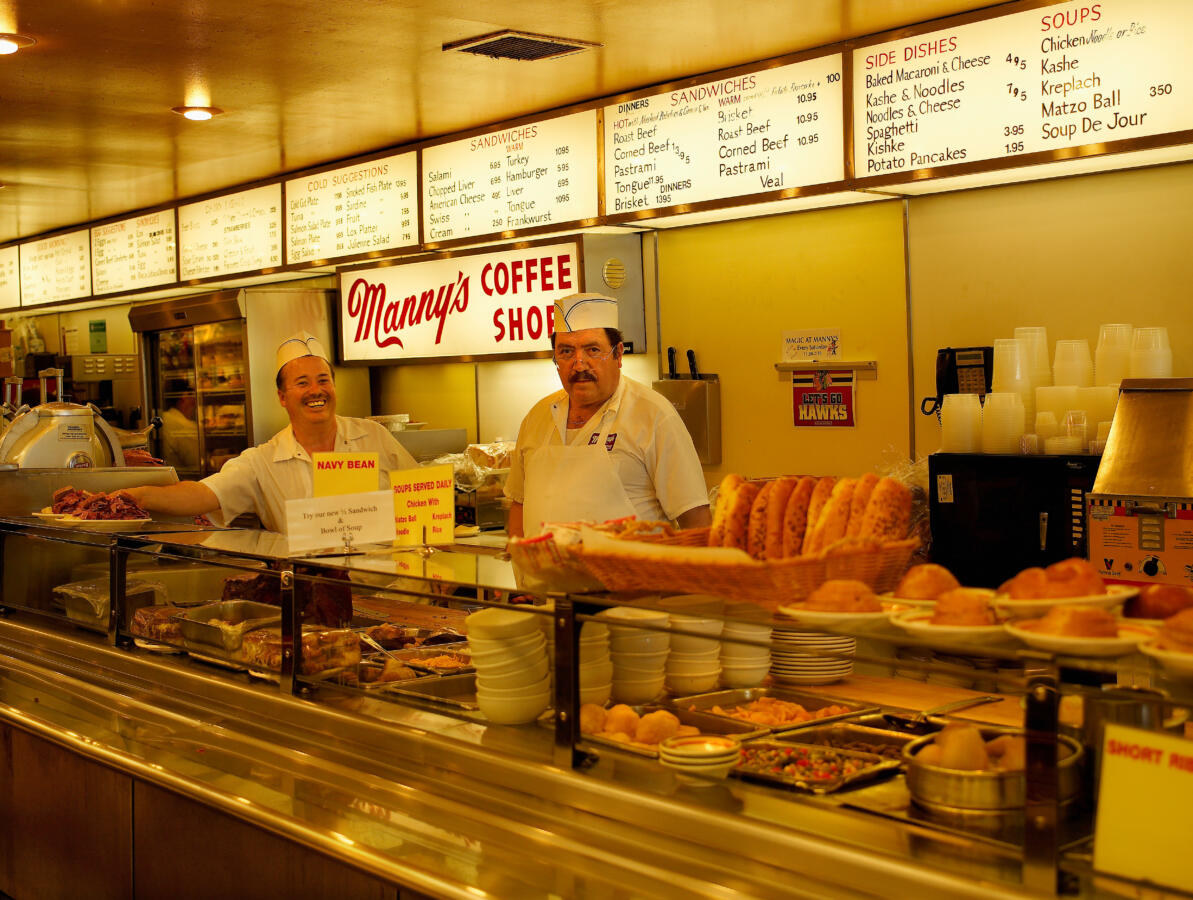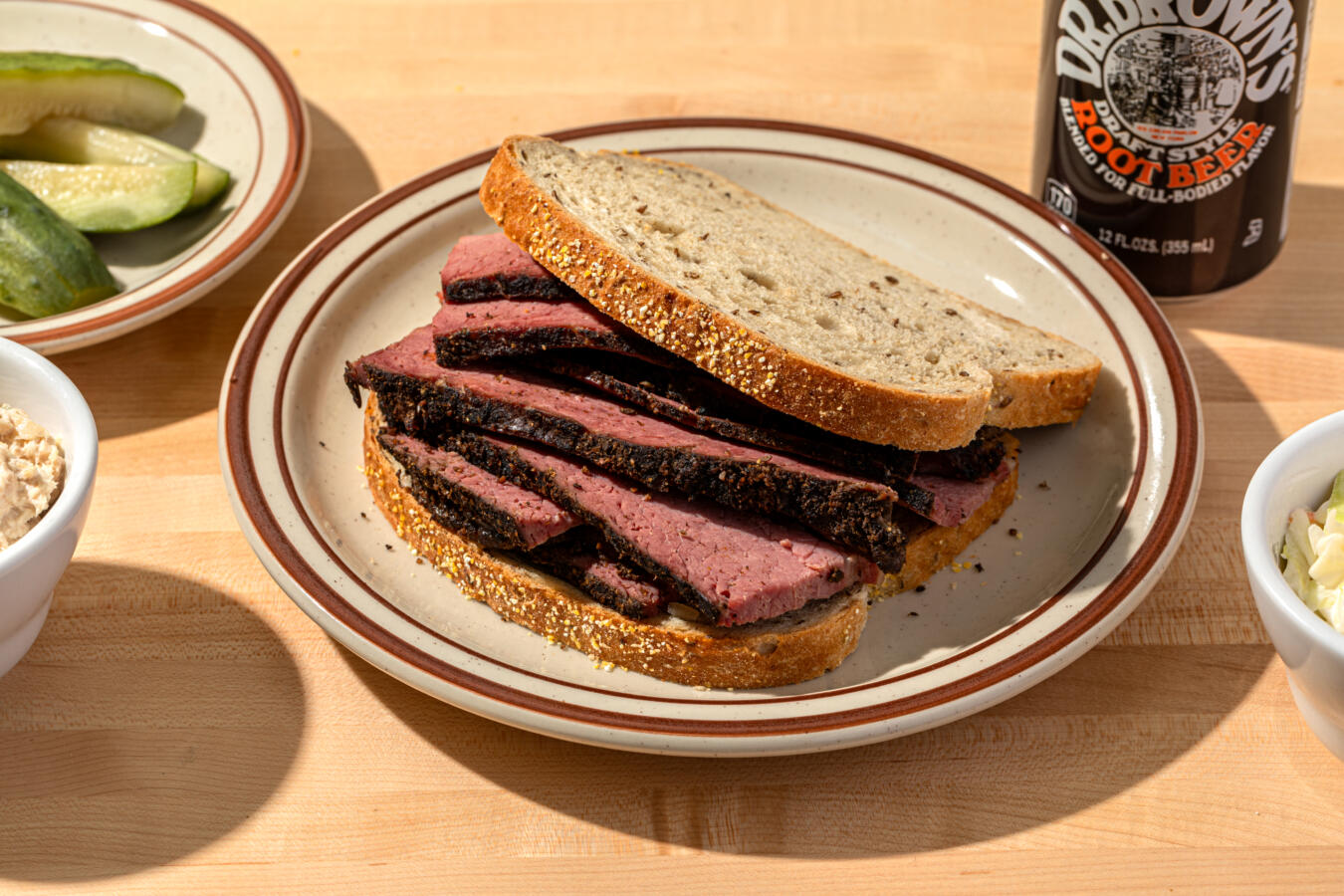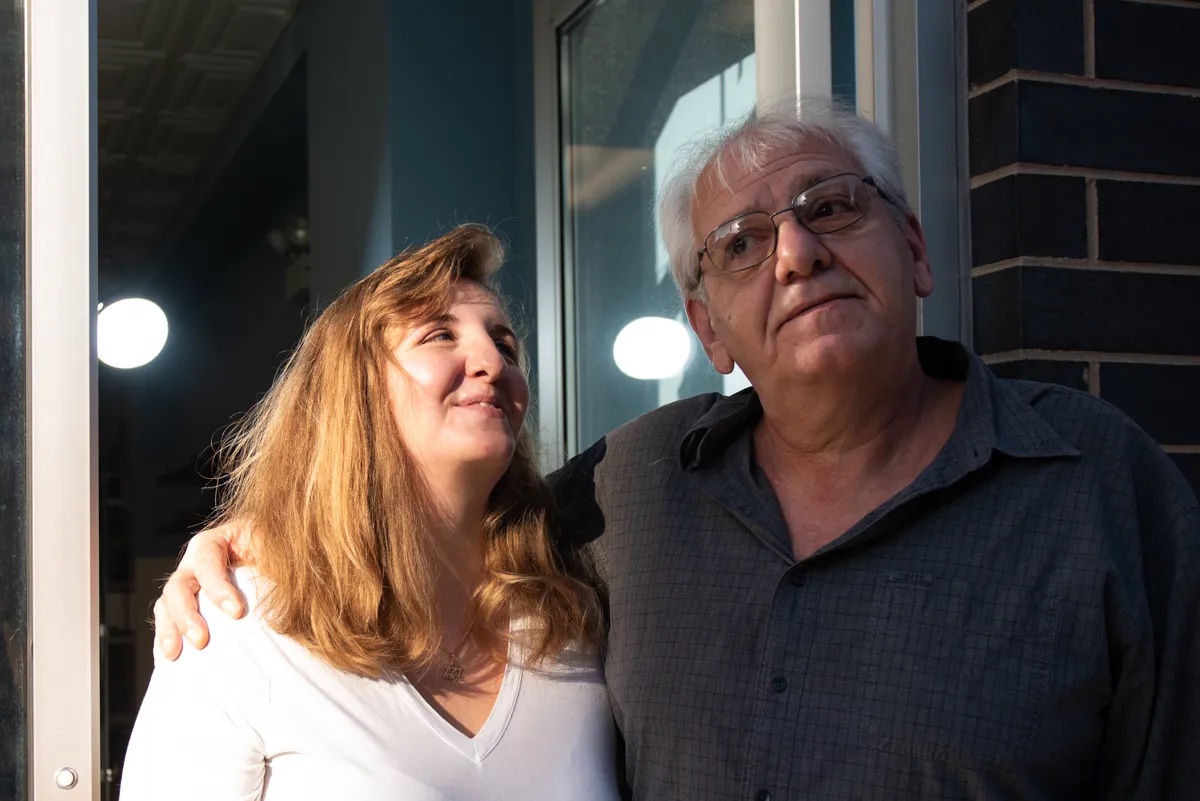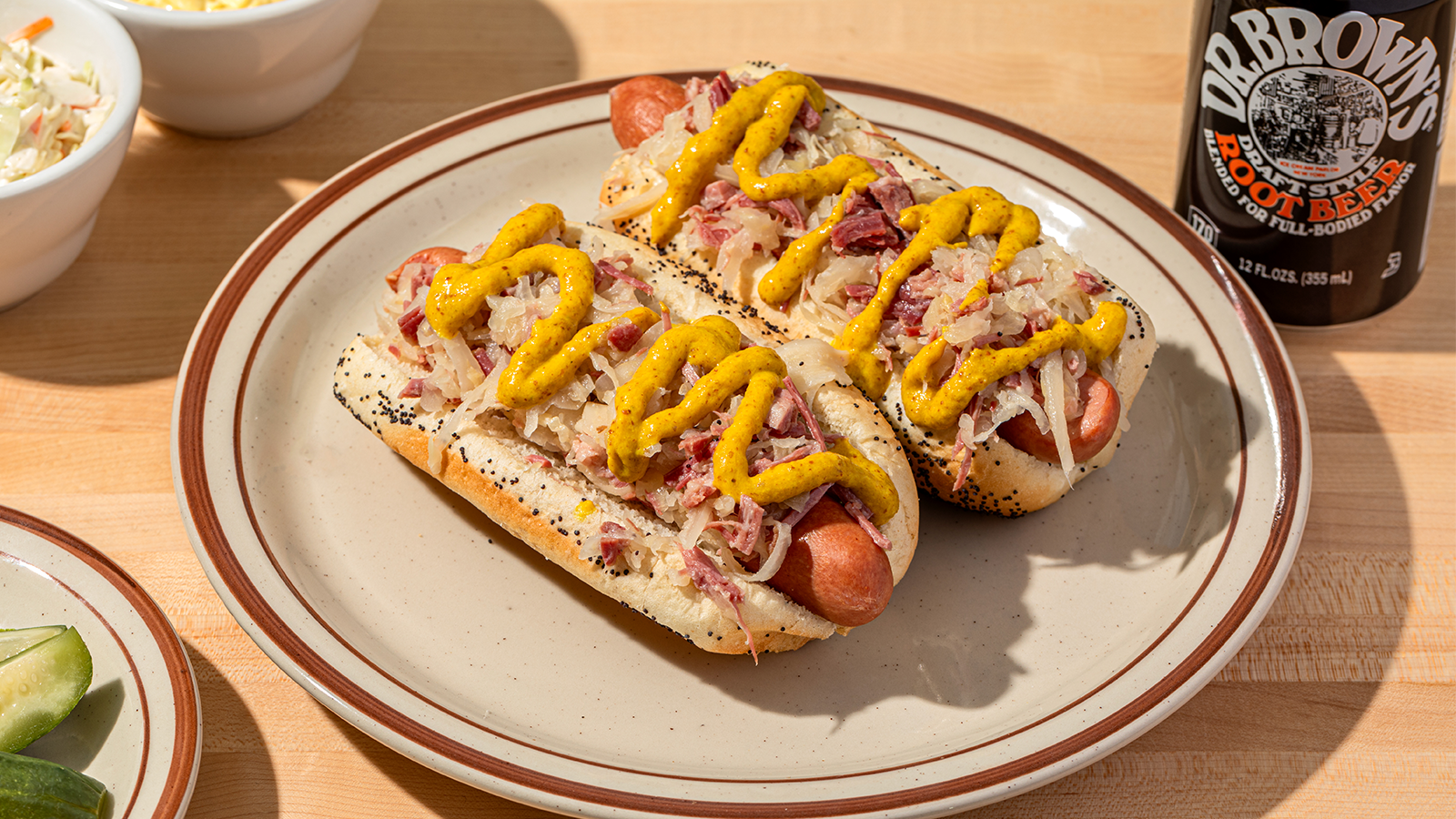From David Sax’s 2009 book “Save the Deli: In Search of Perfect Pastrami, Crusty Rye, and the Heart of Jewish Delicatessen” to the 2014 documentary “Deli Man,” the death knell was sounded for the American Jewish deli. Changes in the way people eat — less meat, more plant-based diets — and the assimilation of Jewish neighborhoods contributed to fewer classic Jewish delis, the kosher-style spots with piled-high sandwiches. (Traditionally a kosher deli would be a separate shop from an appetizing store, which would sell cheeses, dairy products and smoked fish. Kosher-style spots sell everything under one roof.) Chopped liver made way on the menu for avocado toast.
Except, someone forgot to tell all that to restaurateurs in Chicago. The Midwestern city is experiencing a deli renaissance, with new Jewish delis popping up in neighborhoods all over the city and suburbs while beloved classics get new owners and energy. There’s even a special exhibition about delis at the Illinois Holocaust Museum through April 2024.
Since 1942, Manny’s Cafeteria and Delicatessen has been serving locals, presidential candidates and everyone in between. The Bagel Restaurant and Deli just got its first new owner in more than half a century, assuring it will continue to serve classic dishes despite the loss of its long-time, third-generation owner last year. Alongside those stalwarts, newcomers offer new approaches.

Bagel Miller, in the Lincoln Square neighborhood, incorporates Asian flavors with traditional tastes. In Lakeview, Steingold’s of Chicago is a classic deli with some local twists, such as a deep-dish pizza bagel. Uptown’s Sam & Gertie’s claims to be the first vegan Jewish deli anywhere. The weekend-only spot regularly sells out.
The Nosher celebrates the traditions and recipes that have brought Jews together for centuries. Donate today to keep The Nosher's stories and recipes accessible to all.
Sam Zeitlin started baking bagels during the pandemic when his fine-dining job disappeared. At first he was selling in farmers’ markets across the city and he’s now raising funds to open a brick-and-mortar outpost of Zeitlin’s Delicatessen. In December 2023, Zeitlin’s moved into a food hall stall as an interim permanent location.
Zeitlin believes his career choice is more common among his peers than it was a generation ago: “Being a chef is more accepted in the Jewish family sphere,” he says, and as a result, more younger Jewish chefs are opening their own places and turning to traditional food for inspiration.
“I think it has to do with a yearning to find your roots. Temple membership drops all the time, but the food connects up to it,” explains Paul Stern, owner of Fritzi’s Delicatessen, which closed its doors in November 2023 due to problems behind the scenes, including supply chain issues. “If you can find this comfortable spot which is your food, you can find a solace of your own tradition.”
In August 2023, Jake Schneider and his wife, Ariel, opened Schneider Deli in the old Ohio House Motel space, one of the highest-profile new restaurants in Chicago that year. Schneider, who had previously worked in restaurants, at a meal kit company and ran a “virtual pickle store” as a side hustle, said: “Food is the cornerstone of my identity. Judaism is really important to me, and a deli is the most accessible and recognizable type of restaurant related to our people.”

Schneider makes his own style of brisket and other classic meats, but does not bake the bagels or breads, in part to highlight and celebrate other producers in the area. Once Upon a Bagel brings bagels from the suburbs to the deli daily; the spot was a favorite of his growing up and a weekly outing for his family. There’s a similar symbiosis at Helfeld’s Delicatessen, which opened in Wicker Park in July 2022. It doesn’t serve coffee but has a relationship with the coffee shop down the street, so people can buy a cup while they wait for their breakfast sandwiches.
Emily Helfeld is a third-generation Jewish deli owner. She opened kosher-style Helfeld’s Deli in 2021 with her father, Mark Grutz, who learned the business from his father, a Holocaust survivor who opened a deli after immigrating to Chicago.
“When people found out that we were opening, they were ecstatic, which we were surprised about. We didn’t know that there was such a need for Jewish deli.
“I think there’s something that’s been lost in authentic communication when you go into places like this,” Helfeld says. “Our food is delicious, but people really love coming in there and talking to my dad. They love kibitzing.”

Small delis like Schneider and Helfeld’s (Schneider’s has just 21 seats and Helfeld’s is takeout only) are dotted throughout neighborhoods, not just downtown or the suburbs, catering to folks who work remotely and have different commutes than they did a decade ago.
But, bottom line, Chicago deli owners say, their eateries are popular because bagels and lox and pastrami on rye taste good.
“[Jewish] deli food had become all the same and it all looked the same,” Stern adds. “It had lost the significance of what it was. The fact is this is extraordinarily delicious food. I mean, a great piece of kishka is something else. I would argue cholent is the best beef stew on the planet Earth.”



